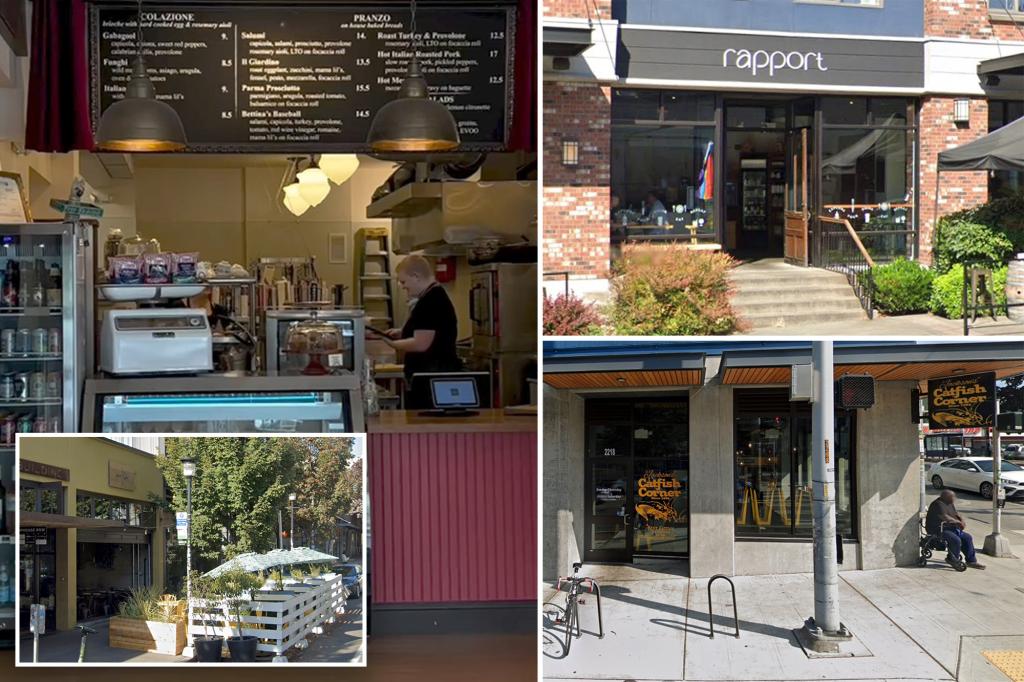The implementation of Seattle’s new minimum wage law, mandating $20.76 an hour, has sent ripples of concern and closures through the city’s restaurant industry. Just days into the new year, at least five establishments have announced their closure, attributing the increased labor costs as a primary factor in their decisions. This wave of closures underscores a growing fear among small business owners that the new wage, coupled with other economic pressures, will create an unsustainable business environment, leading to further casualties in the coming months. The elimination of the “tip credit,” which previously allowed smaller businesses to factor tips into their wage calculations, has further exacerbated the financial strain, removing a crucial buffer against rising labor costs.
The closures represent a diverse cross-section of Seattle’s culinary landscape, from long-standing community staples to newer ventures. Bel Gatto, a bakery operating for less than a year, cited the inability to absorb the nearly 20% increase in labor costs as the reason for its closure. Jackson’s Catfish Corner, a soul food institution that served the Central District for four decades, similarly pointed to the wage hike, alongside dwindling foot traffic and rising operational costs, as contributing factors to its demise. These closures represent not only the loss of businesses but also the potential erosion of community character and cultural diversity within Seattle’s neighborhoods.
The impact of the new wage law extends beyond established businesses. The Jilted Siren, a bar lounge in Capitol Hill, also announced its closure, highlighting the challenges faced by small businesses in absorbing the increased labor costs without the tip credit. The owners are considering relocating to a more affordable area, underscoring the potential displacement of businesses from traditionally vibrant neighborhoods. Plum Bistro, a 20-year-old vegan restaurant in Capitol Hill, also closed its doors, along with its smaller satellite location, Plum Chopped. While the reasons weren’t explicitly stated, the timing suggests a potential link to the new wage law and the broader economic pressures facing the restaurant industry.
The closures are not limited to food establishments. Rapport, a self-pour wine bar in Capitol Hill, announced an indefinite closure, though citing personal family matters as the primary reason. However, the possibility of renegotiating the lease remains open, suggesting underlying financial pressures may be at play. Bebop Waffle Shop, a beloved local spot for over a decade, also closed, with the owner directly citing the minimum wage increase as a key factor. The owner calculated that the new wage would add $32,000 to her annual expenses, a sum impossible to absorb within her current business model.
Industry representatives have voiced growing concerns about the sustainability of the restaurant sector under the new wage law. Anthony Anton, president and CEO of the Washington Hospitality Association, predicts a 5% to 8% decline in the number of Seattle restaurants in 2025. This projection paints a grim picture for the city’s culinary landscape, with the potential for further job losses and economic disruption. The closures and industry predictions highlight the complex interplay between worker compensation, business viability, and the overall economic health of the city.
The situation in Seattle underscores a broader debate surrounding minimum wage laws and their impact on small businesses. While proponents argue for the importance of fair wages and worker protections, critics point to the potential for job losses, business closures, and increased prices for consumers. The elimination of the tip credit, a mechanism designed to mitigate the impact of wage increases on smaller businesses, has further intensified the debate. The ongoing closures in Seattle serve as a real-world case study of the potential consequences of significant minimum wage increases, particularly in conjunction with other economic pressures. The long-term effects on the city’s restaurant industry, its workforce, and its overall economic vitality remain to be seen.

